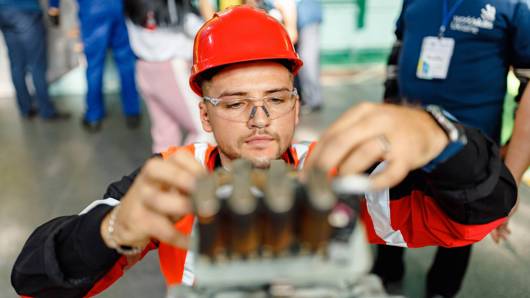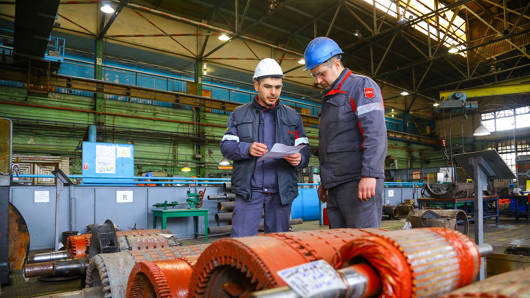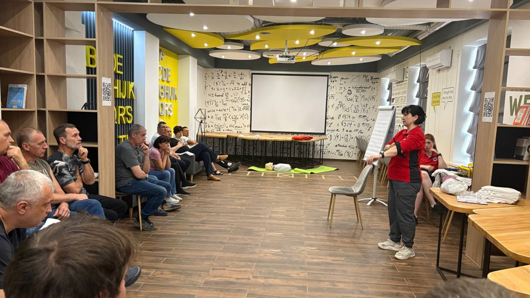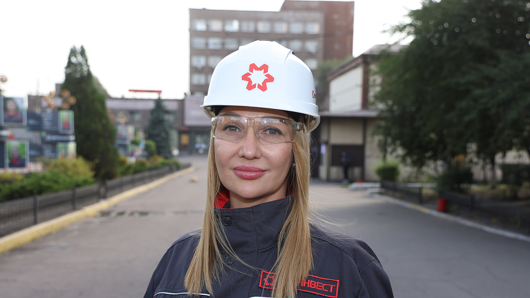Ukrainian sappers are clearing their homeland of enemy explosives, thereby literally and figuratively advancing toward Victory. Demining remains one of the most critical problems for Ukraine. The indiscriminate and extensive mine-laying by russian troops continually endangers soldiers and ordinary citizens alike. Experts estimate that the complete removal of mines from Ukraine could require anywhere from several decades to hundreds of years.
Oleh Panibratenko, who commands a sapper squad, remarked, "There is ample work for both us and numerous coming generations." He added, "Presently, while engaged in mine clearance in reclaimed territories, we are still uncovering ordnance from the Second World War. And that doesn't even account for the present hostilities, which have left behind a massive volume of explosive fragments."
Oleh Panibratenko and his fellow soldiers have been involved in demining the liberated sectors of the Kherson region since 2023. His roots are in Zaporizhzhia.
Prior to the full-scale war, Oleh was employed at Zaporizhstal, working as a steel caster within the steelmaking shop. His tenure there began in 1997, influenced by the careers of his grandfather and parents. Specifically, his grandfather, Anatolii Mykolaiovych, held a position as an electrician in the tinplate shop; his father, Oleksandr Anatoliiovych, was a steelmaker in the open-hearth shop; and his mother, Liudmyla Mykolaiivna, operated a crane in the train preparation shop.
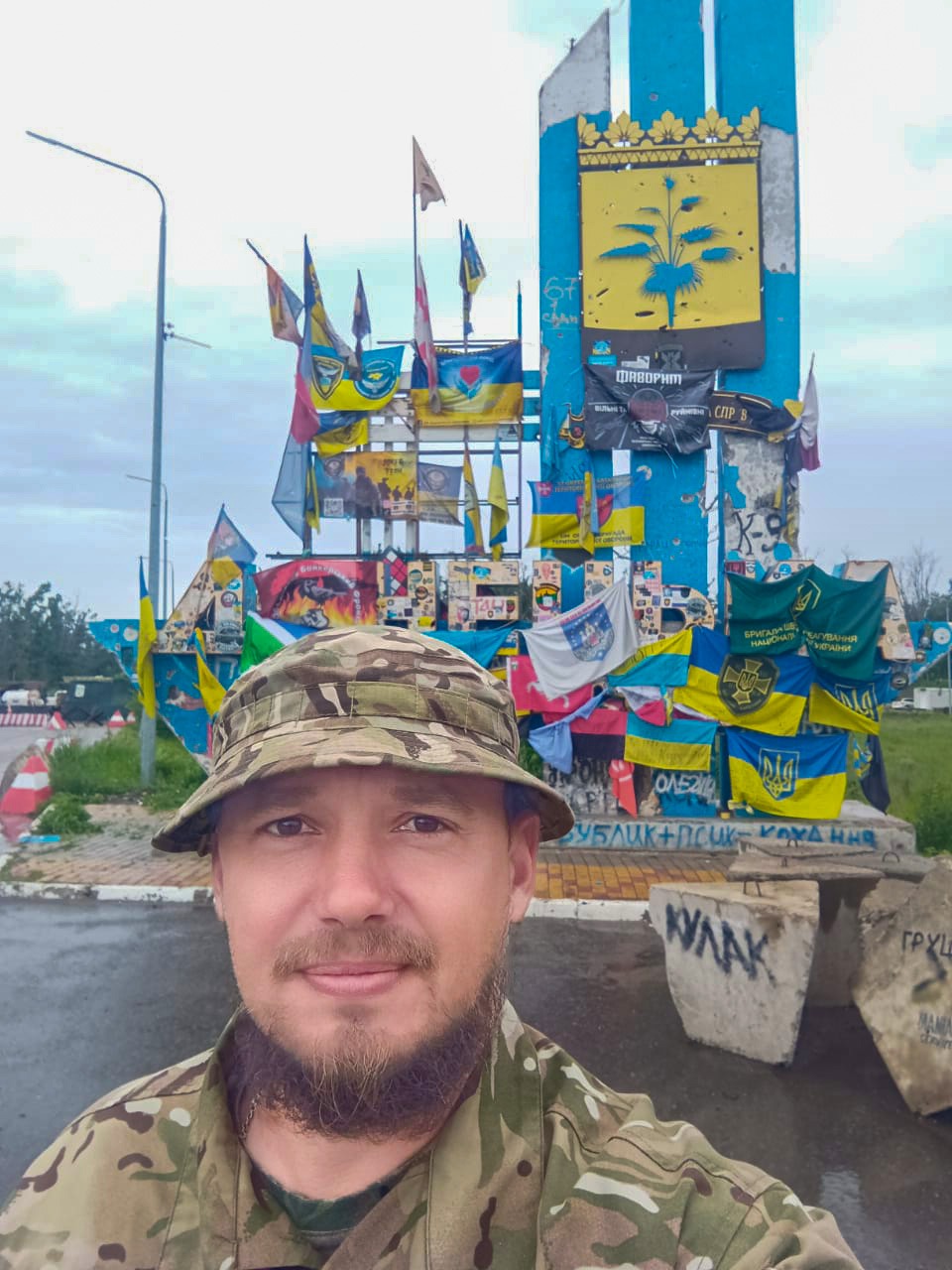
Our metallurgical city and family occupation fill me with pride, which is why I opted to major in Ferrous Metallurgy and subsequently joined the plant," Oleh remembers.
When the full-scale war began, the Zaporizhstal employee was working alongside his usual third brigade.
“Despite numerous concerns and anxieties, our commitment to our collaborative project took precedence. We collaborated effectively until the plant was mothballed in March,” Oleh recollects. “Following this, the plant’s temporary closure required extra exertion from us – every task had to be executed safely and correctly. It was the first time we had ever mothballed production, and none of us had prior experience with it.
Panibratenko also took part in restarting the production units after the shutdown – in April 2022, when the plant resumed operations following a forced 33-day pause.
In addition to his work, Oleh went to the military enlistment office during that period, but due to his lack of military education and experience, he was not mobilized. Therefore, together with colleagues and friends, he joined local volunteer efforts to fortify the city – filling sandbags, preparing incendiary mixtures for placement at checkpoints, and so on.
In June 2022, Oleh was mobilized into the State Special Transport Service. He served as a rifleman in the Zaporizhzhia sector. Starting in the spring of 2023, he underwent training as a deminer and later transferred to a sapper unit. From his peaceful life, the defender brought with him the call sign “Marten” – a nod to the workplace where his character was forged.
We and my fellow soldiers carry out operational demining – neutralizing explosive objects in areas that are within the combat zone or have been recently de-occupied. In particular, we have worked in the Kharkiv and Donetsk regions, and now we are operating in the Kherson region. We carefully inspect territories, detect and neutralize anti-personnel and anti-tank mines, tripwires, and other explosive devices,” Oleh says.
Sapper units use mine detectors and probes in their work. But the primary tools are their own eyes and the ability to stay composed and focused. Enemy mines, unexploded shells and anything that could explode and injure people are detonated by the sappers. Oleh is no stranger to working with fire – his peacetime profession as a steel caster comes in handy when handling tasks that involve heat and flame.
A sapper's responsibilities are varied: they include planting and disarming mines, conducting engineering reconnaissance, and building trenches and protective shelters. "Besides the hazards underfoot, one must also account for airborne threats," remarks "Marten."

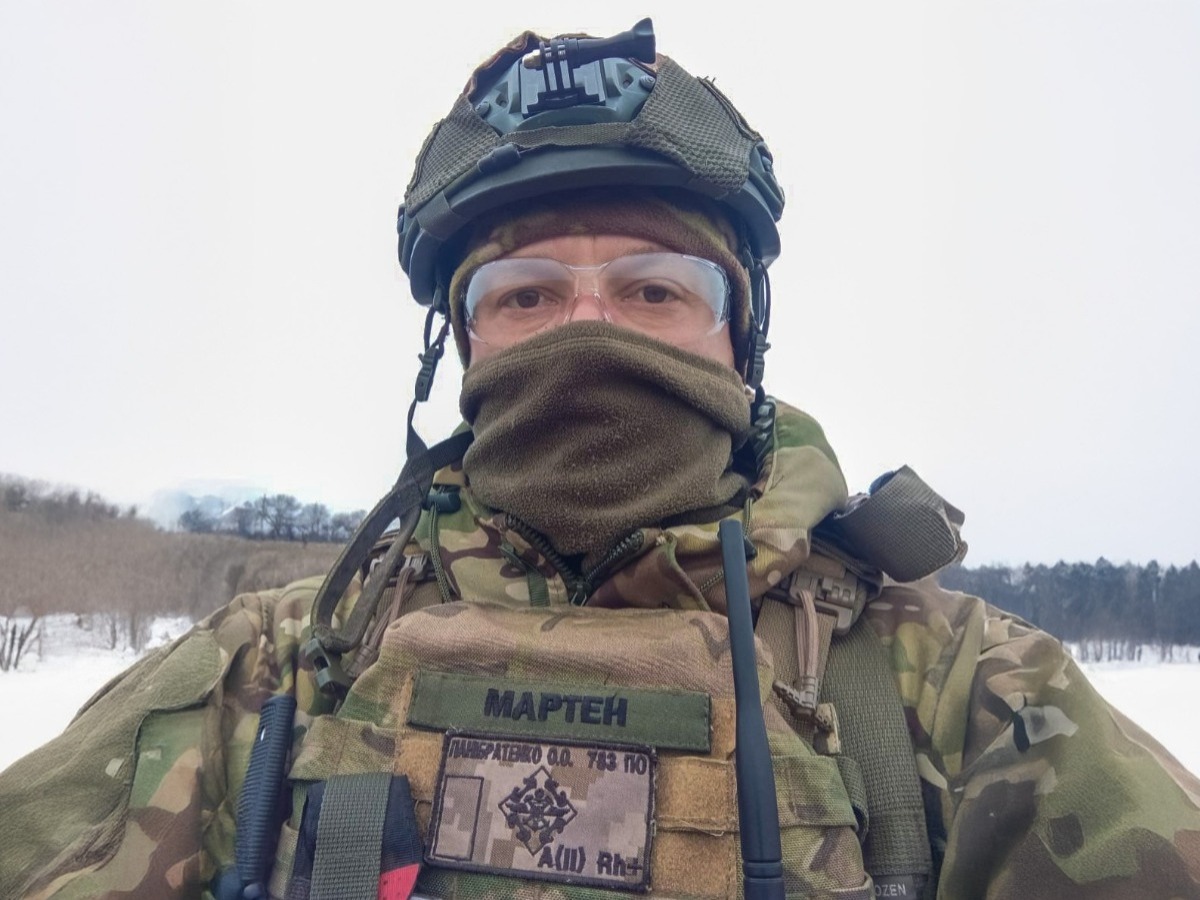
The enemy doesn’t sleep – they hunt us from the air with drones and Lancets, trying to disrupt our work and damage our equipment. Our comrades from reconnaissance and the air forces support us, warn us about danger, and eliminate threats. Teamwork is well coordinated, because we are all doing an important job together,” says Oleh.
Demining teams also receive aid from civilians – Ukrainians who had been patiently waiting for de-occupation to allow them to go back home and restart tilling and planting their properties.
The precise number of hazardous discoveries eliminated is no longer tracked – countless shells, aerial bombs, rockets, mines, and other armaments. Pristine and secure Ukrainian fields are stunning! I dream of demining my native Zaporizhzhia region as well and, after de-occupation,, journey to our Azov Sea for a rest – then quietly work on my own land back home," the defender says.
Zaporizhstal's steelworkers have not forgotten their coworker and are anticipating his return, mirroring the anticipation for hundreds of other deployed employees. At present, a significant portion – specifically, every seventh worker – from Zaporizhstal is defending the country at the front. The plant aids each deployed worker and their families, with their respective work units keeping in touch and looking forward to their colleagues' safe return from combat.






